A Closer Look at Mental Health in Children with Autism
Children with autism spectrum disorder (ASD) face a high prevalence of co-occurring mental health challenges that can significantly influence their development, behavior, and quality of life. Recognizing these challenges, understanding their roots, and learning how to manage them are crucial for caregivers, educators, and healthcare professionals. This article explores the common mental health issues affecting children with autism, their signs, risk factors, and available interventions to support optimal developmental outcomes.
Prevalent Mental Health Conditions in Children with Autism
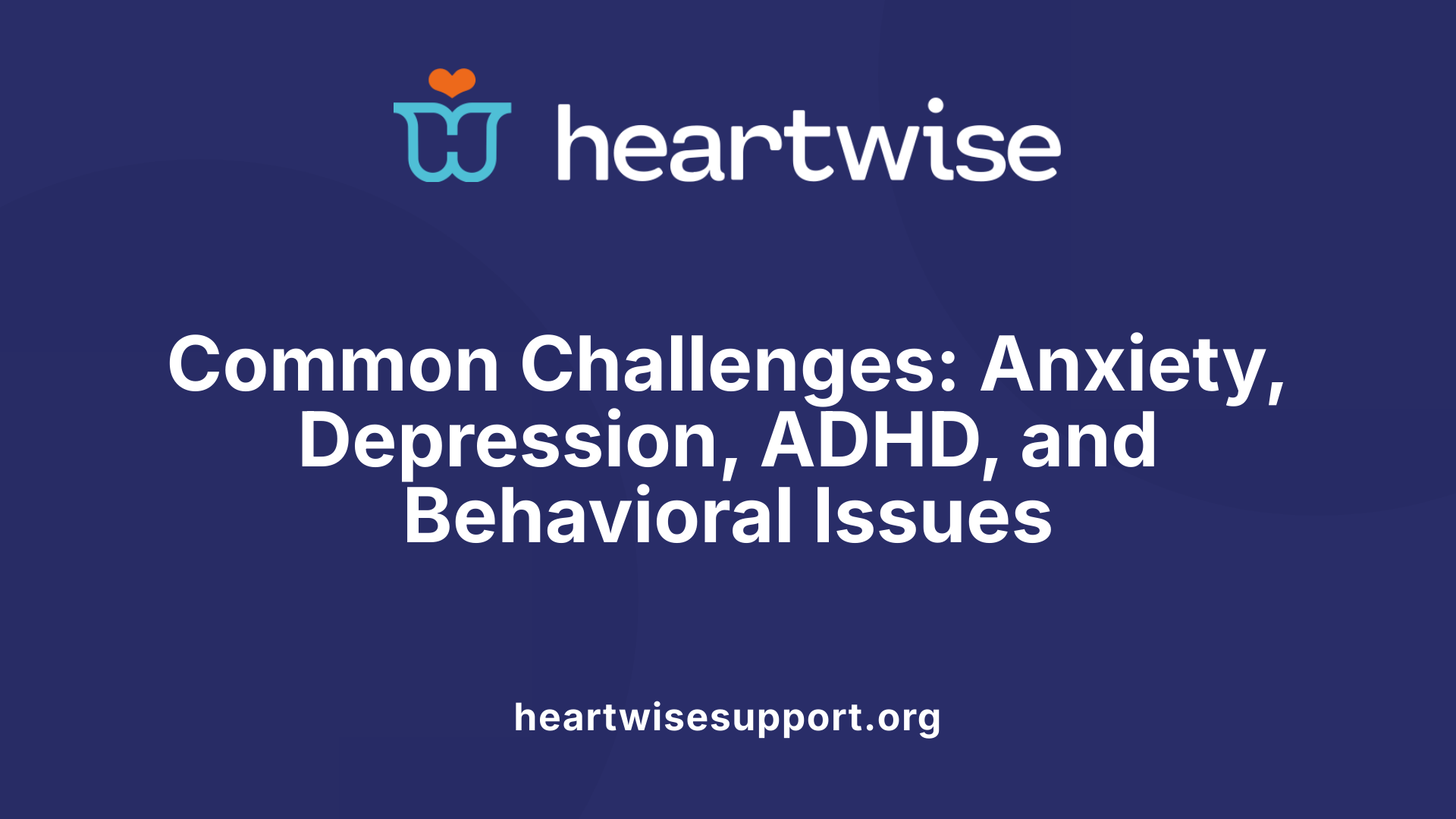
What are common mental health challenges in children with autism?
Children with autism spectrum disorder (ASD) frequently face a range of mental health challenges. The most common issues include anxiety, depression, attention deficit hyperactivity disorder (ADHD), and behavioral problems. Statistics show that approximately 78% of children with autism have at least one mental health condition, and nearly half grapple with two or more disorders.
Anxiety disorders are particularly widespread, affecting about 40% of children with ASD. These can manifest as generalized anxiety, social anxiety, or obsessive-compulsive disorder (OCD), often intensified by difficulties in social interactions and sensory sensitivities. Behavioral issues such as aggression, irritability, and self-injurious actions are also common and may be linked with underlying anxiety or mood disorders.
Depression affects roughly 16% of children with autism and can be triggered by social isolation or challenges in forming relationships. ADHD is present in nearly half of these children, characterized by symptoms like inattention, hyperactivity, and impulsivity, often complicating their daily routines.
Why is early detection important?
Detecting these mental health conditions early is crucial for effective management. Many issues begin to emerge during preschool years, with about 45% of children as young as three to five years old displaying signs. As children grow older, the prevalence increases, reaching over 80% in teenagers with ASD.
Early diagnosis allows for personalized interventions, such as modified cognitive-behavioral therapy (CBT), which has shown promise in reducing anxiety and depression. Tailoring treatment approaches to individual needs can significantly improve emotional regulation and quality of life.
How do interventions support mental health?
Interventions should be multi-faceted, involving mental health professionals, schools, and families. Screening tools like the PROMIS Autism Battery and Parent-Rated Anxiety Scale for ASD help in identifying those at risk. Treatment options include psychoeducation, behavioral therapies, and cautious medication use guided by a child psychiatrist.
Supporting children with autism through routines, social skills training, and interest-based activities enhances resilience and emotional well-being. Developing accessible, evidence-based mental health services and raising awareness are vital steps toward improving outcomes for children with ASD.
Types, Prevalence, and Developmental Trends of Co-Occurring Conditions
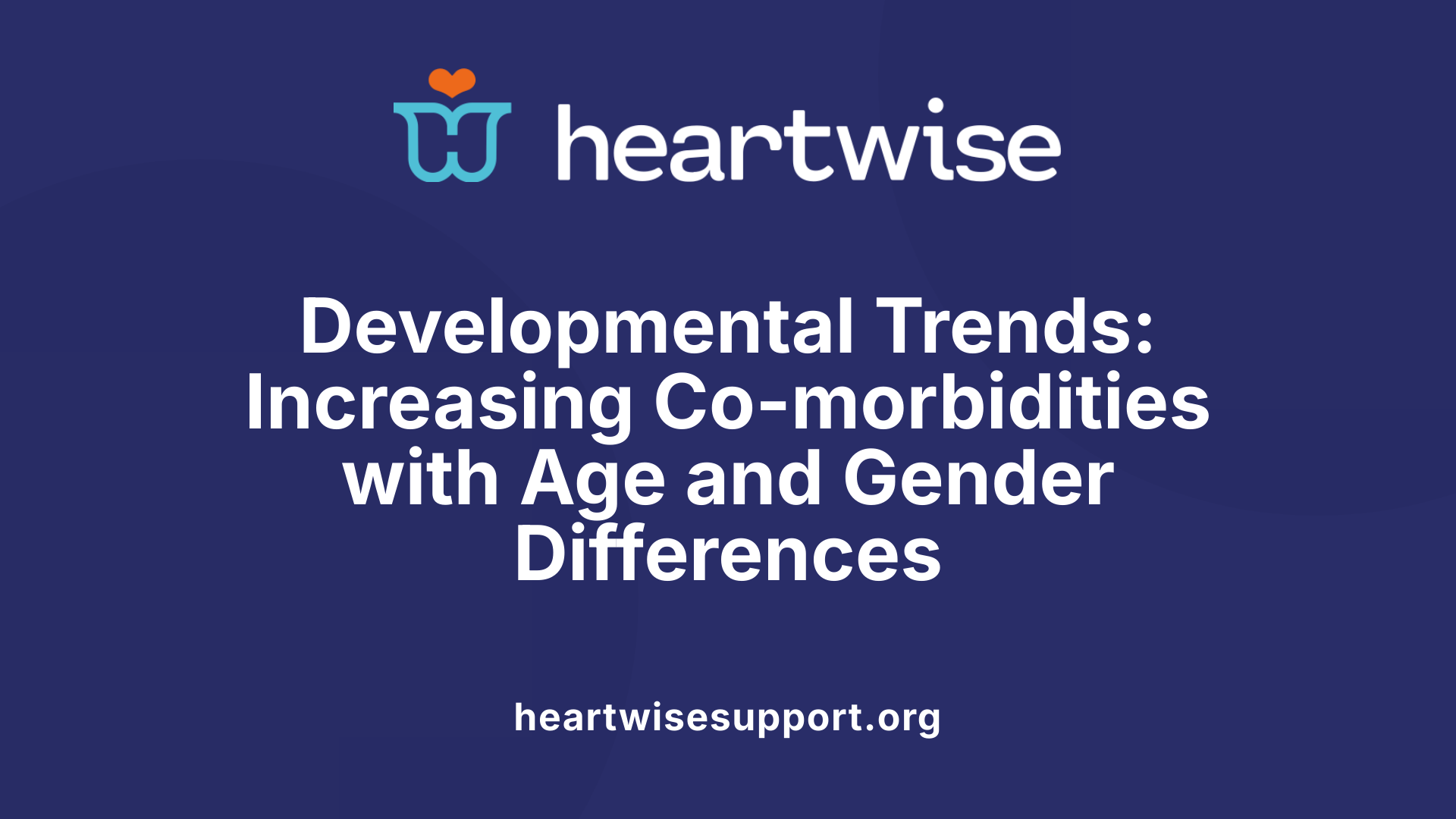 Children with autism often face multiple mental health challenges alongside their core symptoms. According to recent research, more than three-quarters (about 78%) of children with autism have at least one additional mental health condition, with nearly half experiencing two or more. The most common issues include behavioral or conduct problems—affecting approximately 61%—attention deficit hyperactivity disorder (ADHD) at around 48%, anxiety in about 40%, and depression in roughly 16%.
Children with autism often face multiple mental health challenges alongside their core symptoms. According to recent research, more than three-quarters (about 78%) of children with autism have at least one additional mental health condition, with nearly half experiencing two or more. The most common issues include behavioral or conduct problems—affecting approximately 61%—attention deficit hyperactivity disorder (ADHD) at around 48%, anxiety in about 40%, and depression in roughly 16%.
These conditions are not static; their prevalence increases as children grow older. For instance, 45% of preschool-aged children with autism show signs of mental health difficulties, while this figure rises to over 86% among teenagers aged 12 to 17. Girls with autism are notably more vulnerable to anxiety, with prevalence rates twice that of boys. Children with intellectual disabilities or those who experience early adverse childhood circumstances are also more likely to develop mental health issues, further complicating their developmental trajectory.
In addition to mental health conditions, children with autism often contend with other health challenges. Gastrointestinal issues, such as chronic constipation or abdominal pain, occur in approximately 21% of autistic children. Sleep disturbances are common too, affecting many by disrupting daily functioning. Seizures, or epilepsy, affect about 5% of children and up to 12.1% in autistic adults, manifesting through seizures or involuntary movements. Eating habits are frequently restricted, with up to 70% showing food selectivity or aversions to certain textures, which can impact nutrition.
Overall, these co-occurring conditions significantly influence the quality of life for autistic children and adolescents. Recognizing the patterns of prevalence across different ages and genders underscores the importance of early and ongoing assessment. Tailoring interventions to address both autism and these comorbidities can help improve long-term outcomes and quality of life.
Recognizing Symptoms and Diagnosing Mental Health Challenges
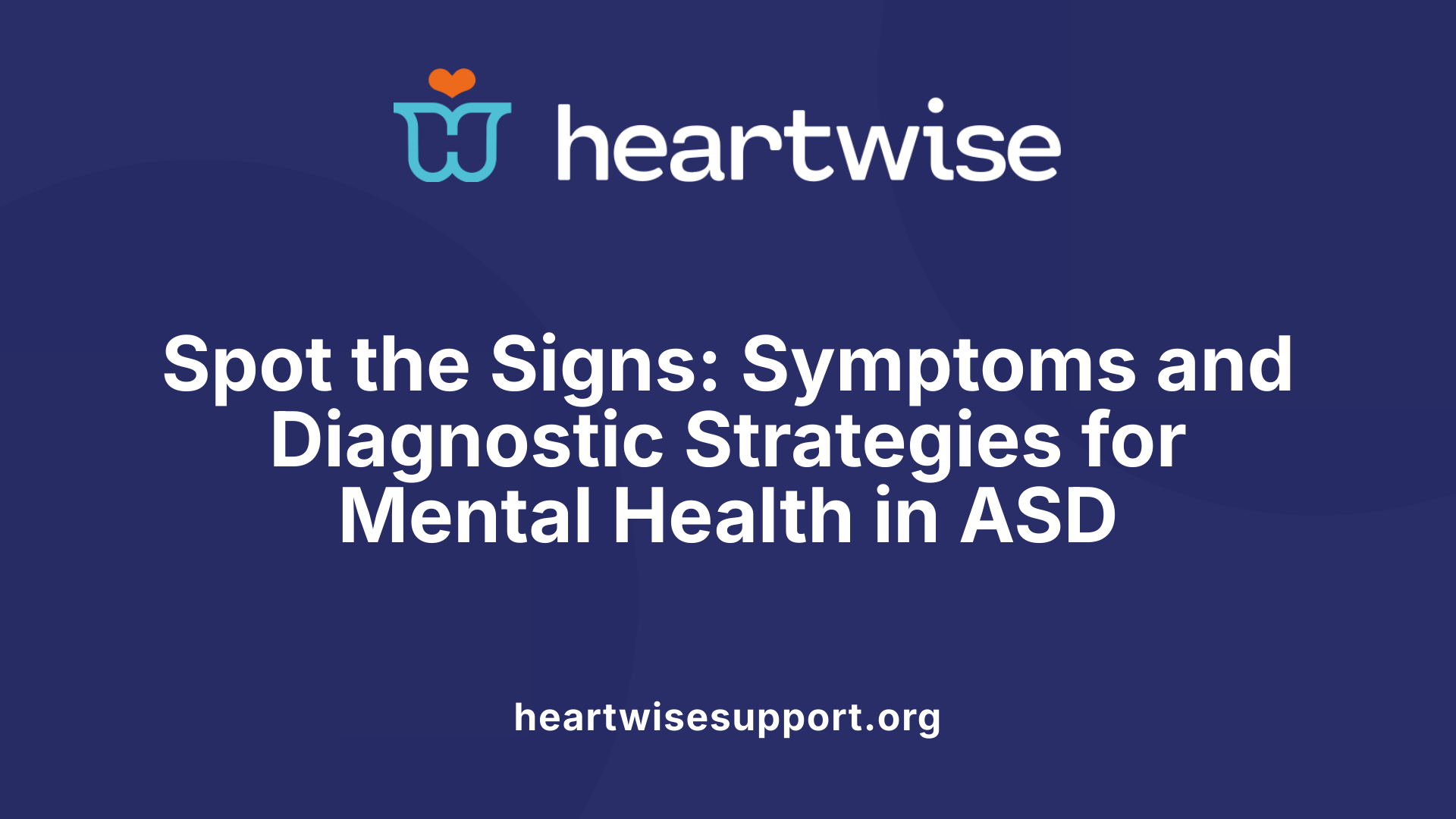
What are the symptoms, signs, and methods for diagnosing mental health issues in children with autism?
Children with autism spectrum disorder (ASD) often show distinctive signs that can highlight co-occurring mental health conditions. Typical autism symptoms include challenges with social communication like limited eye contact, not responding to their name, delays in speech development, and difficulty interpreting social cues. Repetitive behaviors such as hand-flapping, rocking, and strict routines are also characteristic, often accompanied by sensitivities to sensory inputs like bright lights or loud noises.
Mental health issues such as anxiety and depression can manifest through behavioral changes. These may include withdrawal from social interactions, irritability, rapid mood swings, or increased aggressive outbursts. Some children might display physical signs like weight changes or sleep disturbances, or engage in self-harm or show suicidal thoughts.
Diagnosing these conditions involves a comprehensive assessment process. Healthcare providers use standardized tools such as the Autism Diagnostic Observation Schedule (ADOS), which involves observing behavior in controlled settings. Caregiver interviews and reports play a vital role in understanding the child's behavior across different environments.
Screening often begins early, with tools like the Modified Checklist for Autism in Toddlers (M-CHAT) and the Social Communication Questionnaire (SCQ), typically around ages 18 and 24 months. If concerns rise, a detailed behavioral assessment is carried out, examining core autism features and any additional mental health symptoms.
Since symptoms and severity can vary widely among individuals and evolve over time, ongoing observation and evaluation are critical. Recognizing early signs allows for timely interventions, which are essential in improving mental health outcomes and overall development.
Risk Factors and Co-Existing Conditions Influencing Mental Health
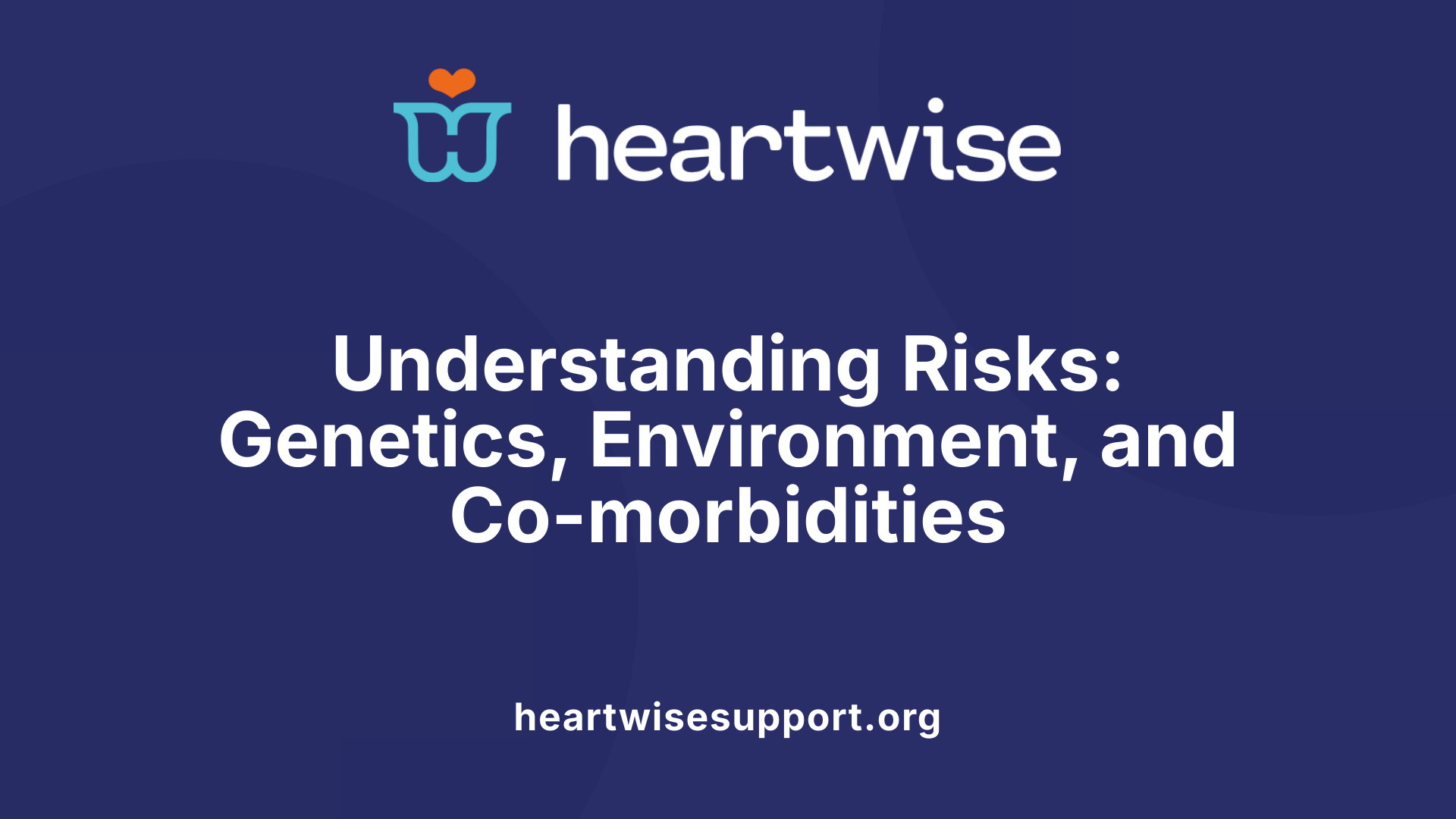
What are the risk factors and common co-morbidities related to mental health in children with autism?
Children with autism face a higher likelihood of developing various additional health conditions, collectively known as co-morbidities. These include neurological, gastrointestinal, and mental health disorders.
Genetic factors play a pivotal role; conditions such as fragile X syndrome, tuberous sclerosis, and Down syndrome are linked to a greater risk of autism and its associated challenges. Environmental influences also impact development, including factors like prematurity, complications during birth, and advanced parental age at conception.
Beyond genetics and environment, prenatal exposures—such as infections, toxins, or stress—may contribute to autism's development. Other biological factors, including neuroinflammation, immune system irregularities, and metabolic disturbances, are also involved.
Common health issues accompanying autism encompass gastrointestinal problems (such as constipation and reflux), sleep disturbances, and sensory processing differences. Mental health challenges like anxiety and depression frequently co-occur, especially as children grow older.
Understanding these contributors is essential for accurate diagnosis and effective intervention. Identifying risk factors helps practitioners create tailored treatment plans and supports early interventions that can improve outcomes for children with autism.
| Risk Factors & Co-morbidities | Description | Additional Notes |
|---|---|---|
| Genetic Conditions | Fragile X syndrome, Tuberous sclerosis, Down syndrome | Significantly increase autism risk |
| Environmental Factors | Prematurity, birth complications, parental age | Contributing non-genetic influences |
| Prenatal exposures | Infections, toxins, stress | May disrupt fetal development |
| Biological irregularities | Neuroinflammation, immune abnormalities, metabolic issues | Underlying causes for behavioral challenges |
| Common co-morbidities | Epilepsy, GI issues, sleep disturbances, anxiety, depression | Frequently seen alongside autism |
Fostering awareness of these factors enhances early detection and holistic management strategies, ultimately supporting better health and well-being for children with autism.
Strategies for Managing and Supporting Mental Health in Children with Autism
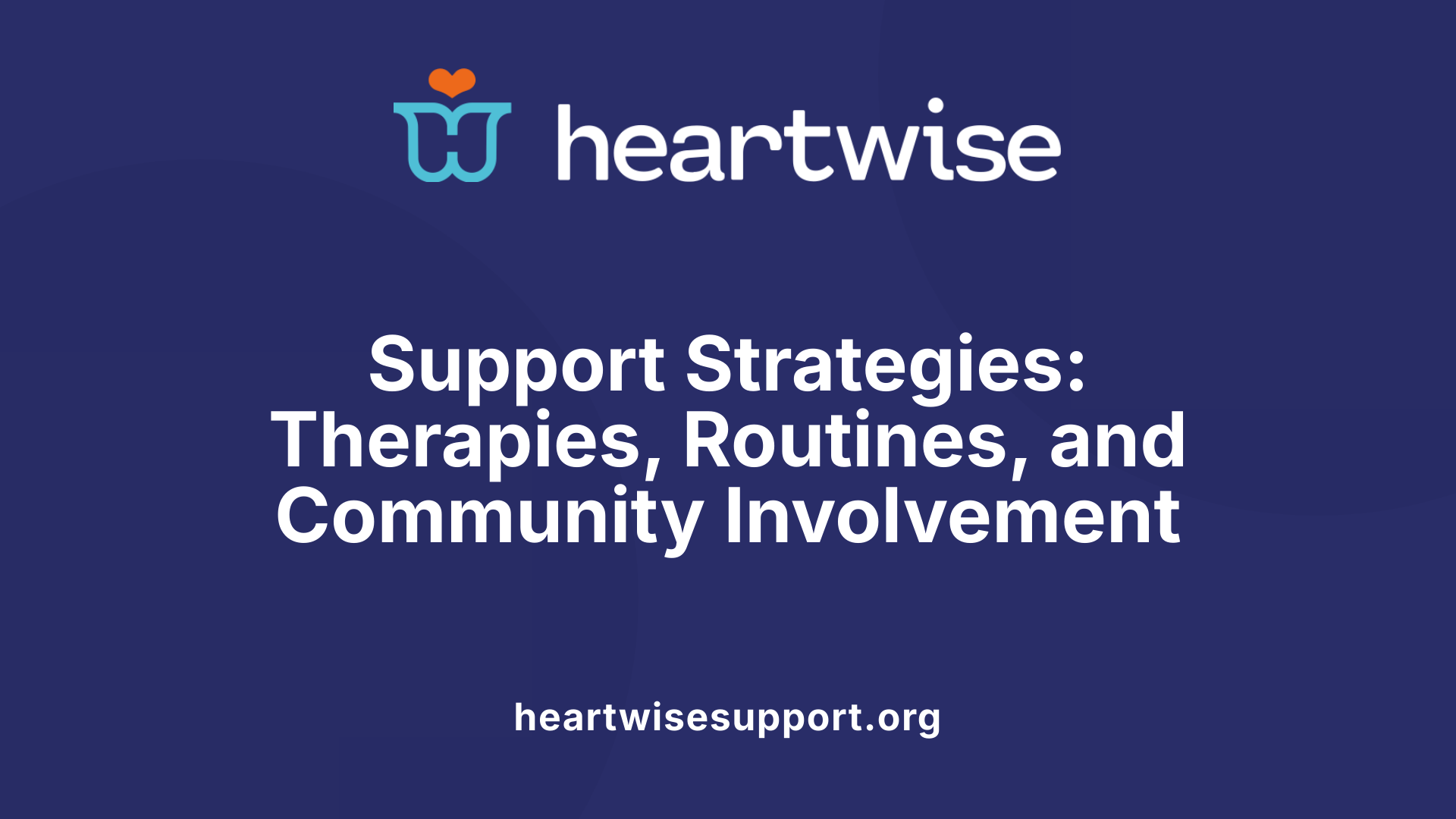
What strategies can be used to manage and support mental health challenges in children with autism?
Supporting the mental health of children with autism involves a range of interventions tailored to their unique needs. Behavioral therapies such as applied behavior analysis (ABA) and cognitive-behavioral therapy (CBT) are cornerstone approaches. These therapies help children develop coping skills, improve social interactions, and regulate their emotions.
Family-centered and community-based supports are also essential. They encourage participation in peer groups and social activities, which can reduce feelings of isolation and build confidence. Promoting family involvement ensures that interventions are consistent and supportive.
Early screening for mental health issues like anxiety, depression, and ADHD allows for timely diagnosis and intervention. Using validated screening tools such as the PROMIS Autism Battery or Parent-Rated Anxiety Scale for ASD (PRAS-ASD) can facilitate early detection.
Building a strong support network for caregivers and children is vital. This includes access to mental health professionals, educators, and community resources, enabling a multidisciplinary approach that addresses behavioral, psychological, and medical needs.
Establishing predictable routines and engaging in social skills training can help children feel more secure and confident. Participating in peer support programs and interest-based activities can foster social connections and purpose.
Incorporating these strategies, along with ongoing assessment and support, helps in managing mental health challenges effectively, promoting overall well-being and quality of life for children with autism.
Importance of Early Detection and Resources for Support
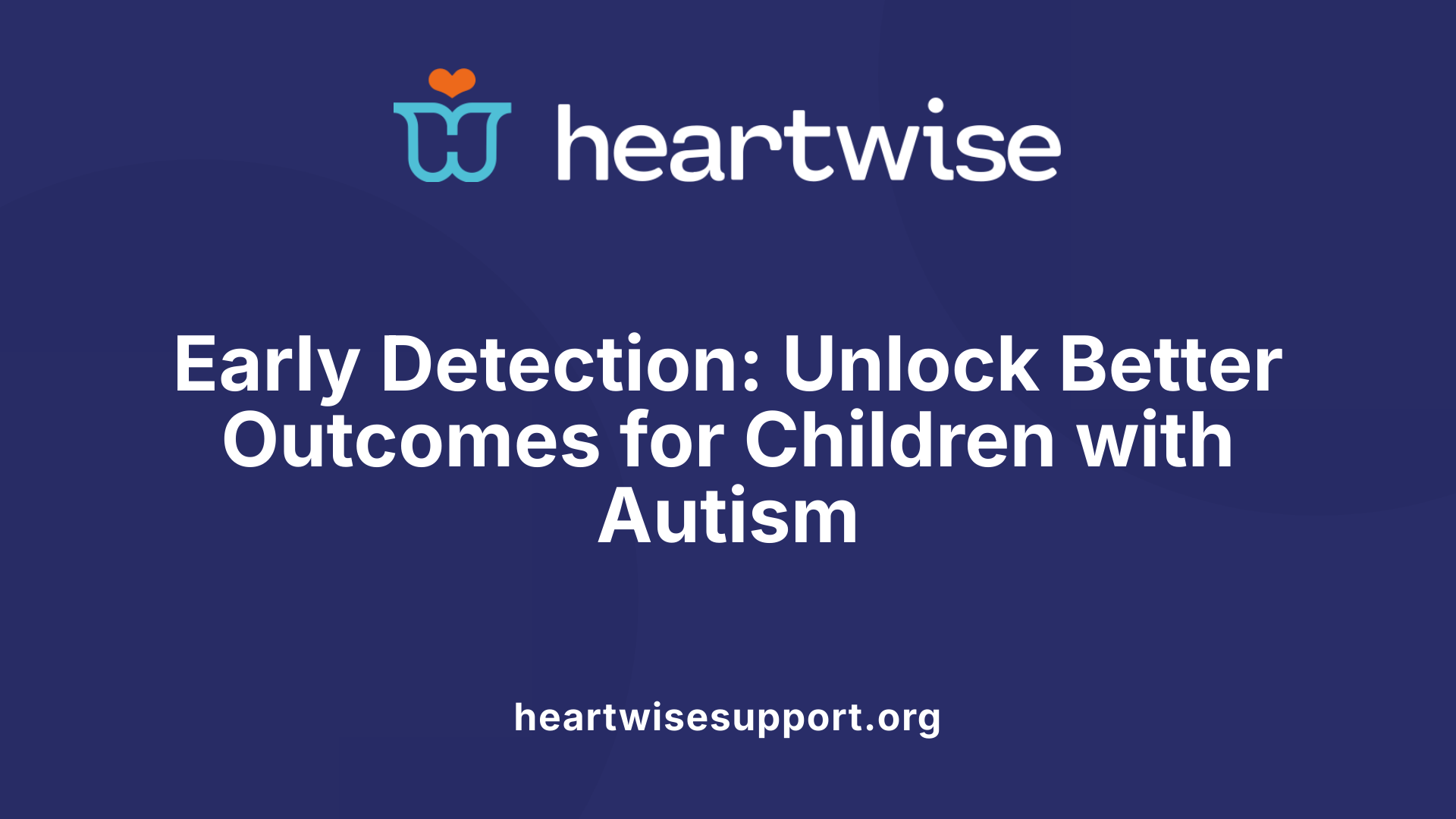
Why is early detection and intervention important for mental health issues in autistic children?
Detecting autism and associated mental health conditions early can significantly influence a child's developmental trajectory. When signs of ASD are identified during preschool years, tailored therapies like behavioral interventions, speech, and social skills training can be implemented promptly. This timely support leverages the brain's heightened plasticity during early childhood, potentially reducing the severity of symptoms and fostering better social, emotional, and cognitive development.
Early identification not only enhances adaptive skills but can also prevent the escalation of behavioral challenges such as anxiety, depression, or conduct problems down the line. Research indicates that children who receive early and appropriate interventions often show improved outcomes, with some no longer meeting diagnostic criteria later in life. This approach maximizes the child's potential for social integration and overall well-being.
Screening tools, community programs, caregiver guidance, and professional resources
Utilizing validated screening tools like M-CHAT and SCQ can facilitate early detection. Community programs often provide valuable support networks, parent training, and educational resources to help families navigate ASD and mental health challenges. Caregiver guidance emphasizes understanding behavioral changes and emotional cues, encouraging early consultation with healthcare providers.
Professional resources include specialized clinicians such as child psychologists, psychiatrists, and behavioral therapists, who can develop personalized intervention plans. Additionally, public health initiatives and advocacy groups focus on raising awareness and reducing stigma, ensuring children and families access the services they need.
By combining early screening, supportive community efforts, and professional expertise, we can offer children with ASD a better chance at healthy development and improved quality of life.
A Path Toward Better Support and Outcomes
Addressing the mental health challenges faced by children with autism requires awareness, early detection, and tailored interventions. A multidisciplinary approach, family involvement, and community resources play critical roles in supporting these children’s emotional well-being. Recognizing co-occurring conditions and intervening proactively can dramatically improve their quality of life, social integration, and long-term development. Continued research, awareness campaigns, and accessible services are essential to meet the growing needs of this vulnerable population and ensure they receive the care and support they deserve.
References
- Autism and Co-occurring Conditions in Children
- Medical conditions associated with autism | Autism Speaks
- Autism and mental illness in children and young people require ...
- Mental health conditions seen in 78% of children with autism
- Tips for Managing Mental Health Disorders in Children with Autism
- Autism | National Alliance on Mental Illness (NAMI)
- Supporting Mental Health in Children with Autism
- Comorbidity of mental health and autism spectrum disorder











